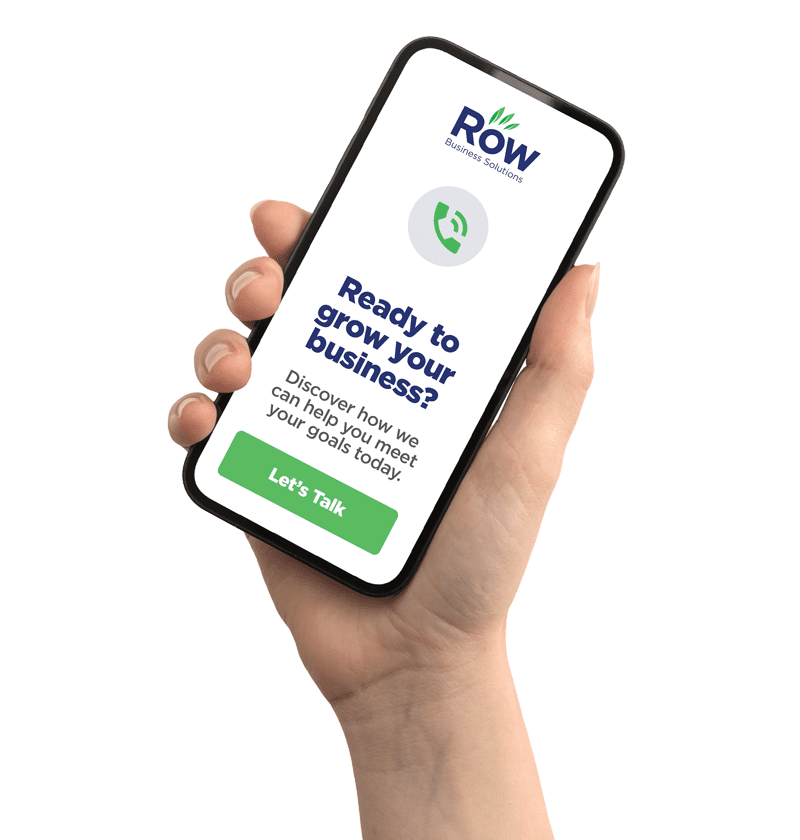How to improve your website page speed
When it comes to improving your website, every second counts. In today's fast-paced world, it's important that your website loads quickly in order to increase user engagement and improve search engine rankings.
Written by: Row Business Solutions

How often do you check your homepage, search engines, and other websites?
We've all been there. We're on the lookout for a new website to visit when we get bored, and we come across one that looks promising. Before we can even check it out, our browser crashes or freezes up because of an error message that says "the site you are trying to reach is experiencing difficulties."
That's frustrating as heck—and it's not what anyone wants their users to experience! In this section, I'll show you how to avoid being part of that statistic by making sure your page speed is fast enough so people stay interested and keep coming back for more.
Make sure all of your images are optimized for optimal speed and performance.
Use a tool like ImageOptim to optimize your images, or TinyPNG to reduce the file size of your images. Make sure to use the right file format for your images—JPEGs for photos, PNGs for illustrations (to avoid transparency), GIFs if you need an animation, etc.
Use HTTPS to ensure secure web traffic.
HTTPS is a secure protocol that encrypts the connection between your website and its visitors. This ensures that all communication between the two ends of this connection is private. Furthermore, HTTPS has been shown to be faster than HTTP by as much as 50% on mobile devices!
In addition to being more secure and faster than HTTP, HTTPS also helps improve rankings in search engines such as Google. The search engine's algorithm learns from each user interaction with a webpage what they liked or didn't like, which allows it to better understand how relevant each page is when producing search results for users who are looking for something specific. By using HTTPS on your website(s), you will significantly increase their chance of ranking well in organic searches compared to those on HTTP because web crawlers can detect which sites use this technology by looking for their green lock icon next to any URL beginning with 'https://' rather than 'http://'."
Don't have a hodgepodge of plug-ins and scripts on your site.
You should never have a hodgepodge of plug-ins and scripts on your site. This is because there's no way for you to know how these plug-ins will interact with each other, or if they're slowing down your site in any way. Instead, install only the plugins or scripts that you absolutely need.
If you plan on using some advanced functionality that requires installing a plug-in or script, consider hiring a web development company, like us, to create a custom solution that works with various APIs to load the information on your website.
Don't use huge images on page load.
If you're using a lot of images on your website, make sure they aren't huge. You don't want to slow down the page load time by loading too many massive files. You can use tools like ImageOptim to compress your images to save bandwidth and improve page load time.
A CDN (Content Delivery Network) is another way to improve your website's performance by caching copies of static files at multiple locations across the world. When someone visits one of these CDNs' servers instead of going directly from their own computer, it helps reduce server load times for visitors and improves overall speed for everyone browsing the web!
Don't install third-party trackers on your site.
Next, you'll want to consider what third-party trackers and widgets have been installed on your site. These are often used for things like analytics, advertising, and social media sharing tools. While these are great for tracking the effectiveness of your ads, they can also slow down load times by using up bandwidth. On their own, each of these may not be too much of an issue—but when you add them all together it can really add up.
Here are some examples of common trackers:
-
Google Analytics (or equivalent)
-
Facebook Pixel (on a site that has FB ads)
-
Twitter/Youtube Widgets
Conclusion
We hope that you’ve learned the importance of site speed and how to optimize it for your website. By following these tips, you can make sure your website loads quickly and efficiently. If you have any questions about our tips or want some additional support from us, we’d love to hear from you! Our team is here for all things websites. You can reach out through our contact form or give us a call at (888) 596-4769





